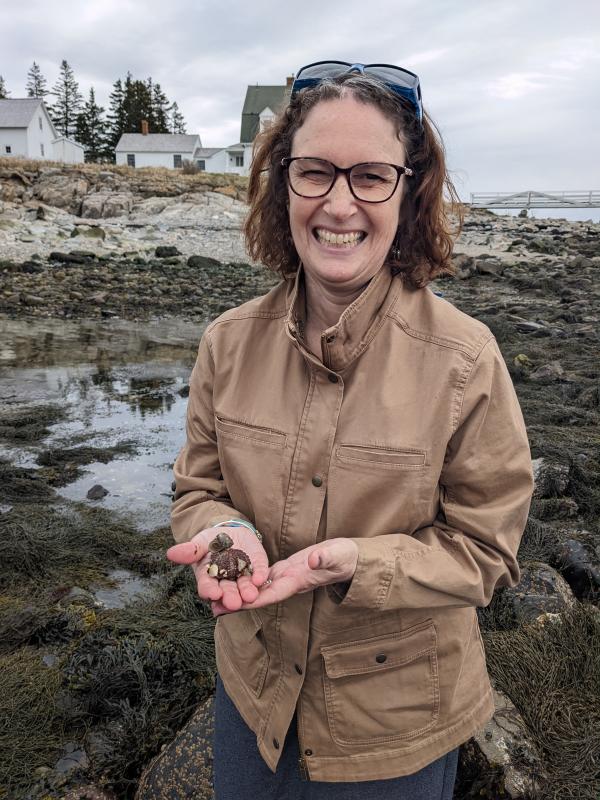Dottie Yunger: director of DMR’s Education Division
How did you spend your summer vacation? Sadly, I know you didn’t spend it at the Maine State Aquarium, because it wasn’t open. When I began as the new Education Division director about a year ago, the Department of Marine Resources began preparing the building to reopen after two years of being closed due to the pandemic. In the process, we discovered, not surprisingly, building issues that need to be addressed, especially given that it is nearly 30 years old. We explored all our options to be completely sure that it was not possible to reopen for the 2022 season, ultimately making the difficult decision that we could not. You can read our public statement here https://www.maine.gov/dmr/programs/education-division
To introduce myself, I’m Dottie Yunger, and as the director of DMR’s Education Division, I manage the Maine State Aquarium, Learning Lab, and Burnt Island with its lighthouse and Education Center. The Learning Lab is adjacent to the Aquarium and serves as a hands-on, interactive lab for individual groups. I am marine biologist and environmental educator, and have worked for the Smithsonian Institution, National Aquarium, Discovery Channel, and most recently, the Calvert Marine Museum in Solomons, MD. At the Smithsonian’s Natural History Museum, I worked in a modeling ecosystems research lab, where we recreated large-scale ecosystems with their living and non-living components. The Gulf of Maine ecosystem was one of them, complete with tides, waves, mud flat, and intertidal zones. It eventually became a public exhibit in the museum’s Sea Life Hall, and I managed the aquarium operations and educational programming for the overall exhibit. So now living and working in the actual Gulf of Maine is a very exciting opportunity for me.
The Maine State Aquarium spent the summer preparing for its extreme makeover. We removed the large lobster and shark tanks, and the touch tank, so we could start installing a new water-resistant, slip-resistant floor. When we removed those tanks, we found extensive water damage (again, not surprising) to the floor and the walls behind the tanks. Behind the walls we found electrical wiring in need of upgrading. If you’ve ever renovated an older house, you know exactly what we are talking about. These all became opportunities for us to remodel the space in ways that will extend the life of the building for years to come.
These renovations will continue through the winter. The animals on display before 2020 were sent to new homes; there isn’t even water in the aquarium tanks currently! We do, however, have our new Wet Lab, where Harbor water passes through a series of filters before collecting in a large reservoir tank. From there it is pumped to various holding tanks, and ultimately will be pumped to the aquarium tanks as well. This wet lab allows us to begin collecting now for the animals that will become the aquarium residents. It is also where our lobster researchers are studying larval lobster and how temperature influences where they choose to move and live.
The Department of Marine Resources has an update website; you can follow the Education Division there and on social media, where we will post regular updates about our renovations. You can find the links to our social media on our webpage https://www.maine.gov/dmr/programs/education-division
Best fishes!























